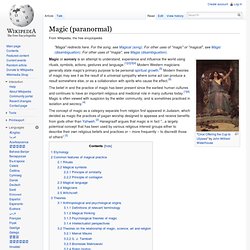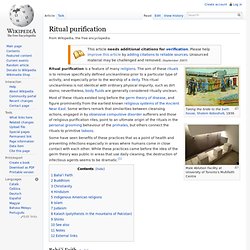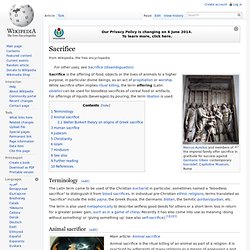Common practices of Ancient near eastern religions
> Mythology
> Mythologies by region
> Asian Mythology
> Ancient near eastern Religions
Divination in Religion
Magic (paranormal)
Magic or sorcery is an attempt to understand, experience and influence the world using rituals, symbols, actions, gestures and language.[1][2][3][4] Modern Western magicians generally state magic's primary purpose to be personal spiritual growth.[5] Modern theories of magic may see it as the result of a universal sympathy where some act can produce a result somewhere else, or as a collaboration with spirits who cause the effect.[6] The belief in and the practice of magic has been present since the earliest human cultures and continues to have an important religious and medicinal role in many cultures today.[7][8] Magic is often viewed with suspicion by the wider community, and is sometimes practiced in isolation and secrecy.[4]

Polytheism. Polytheism is a religious construct and a type of theism.

Within theism, it contrasts with monotheism, the belief in a singular God. Polytheists do not always worship all the gods equally, but can be henotheists, specializing in the worship of one particular deity. Other polytheists can be kathenotheists, worshiping different deities at different times. Polytheism was the typical form of religion during the Bronze Age and Iron Age, up to the Axial Age and the gradual development of monotheism or pantheism, and atheism. It is well documented in historical religions of Classical antiquity, especially Greek polytheism and Roman polytheism, and after the decline of Greco-Roman polytheism in tribal religions such as Germanic paganism or Slavic mythology.
Terminology[edit] The term comes from the Greek poly ("many") and theoi ("gods") and was first invented by the Jewish writer Philo of Alexandria to argue with the Greeks. Gods and divinity[edit] Types of deities[edit] Neolithic Era. Ritual purification. Male Ablution Facility at University of Toronto's Multifaith Centre Ritual purification is a feature of many religions.

The aim of these rituals is to remove specifically defined uncleanliness prior to a particular type of activity, and especially prior to the worship of a deity. This ritual uncleanliness is not identical with ordinary physical impurity, such as dirt stains; nevertheless, body fluids are generally considered ritually unclean. Most of these rituals existed long before the germ theory of disease, and figure prominently from the earliest known religious systems of the Ancient Near East. Some writers remark that similarities between cleansing actions, engaged in by obsessive compulsive disorder sufferers and those of religious purification rites, point to an ultimate origin of the rituals in the personal grooming behaviour of the primates, but others connect the rituals to primitive taboos. Bahá'í Faith[edit]
Sacred prostitution. Sacred prostitution, temple prostitution, or religious prostitution is a sexual ritual consisting of sexual intercourse or other sexual activity performed in the context of religious worship, perhaps as a form of fertility rite and divine marriage (hieros gamos).

Scholars have long considered such practices to be customary in the ancient world; however, more recent scholarship has cast doubts on this picture, based on doubts about the reliability of ancient sources.[1] Some scholars[who?] Prefer the term "sacred sex" to sacred prostitution, in cases where a payment for services was not involved.
The Greek term hierodoulos or "hierodule" has sometimes been taken to mean "sacred prostitute", but it is more likely to refer to a former slave freed from slavery in order to be "dedicated" to a god.[1] The Hebrew term qedesha, found in the Old Testament, is often translated as "temple prostitute".
[citation needed] Ancient Near East[edit]
Sacrifice. Sacrifice is the offering of food, objects or the lives of animals to a higher purpose, in particular divine beings, as an act of propitiation or worship.

While sacrifice often implies ritual killing, the term offering (Latin oblatio) can be used for bloodless sacrifices of cereal food or artifacts. For offerings of liquids (beverages) by pouring, the term libation is used. Terminology[edit] The Latin term came to be used of the Christian eucharist in particular, sometimes named a "bloodless sacrifice" to distinguish it from blood sacrifices.
In individual pre-Christian ethnic religions, terms translated as "sacrifice" include the Indic yajna, the Greek thusia, the Germanic blōtan, the Semitic qorban/qurban, etc. Animal sacrifice[edit] Walter Burkert theory on origins of Greek sacrifice[edit] According to Walter Burkert, a scholar of sacrifice, Greek sacrifices derived from hunting practices. Human sacrifice[edit] Human sacrifice was practiced by many ancient cultures.





